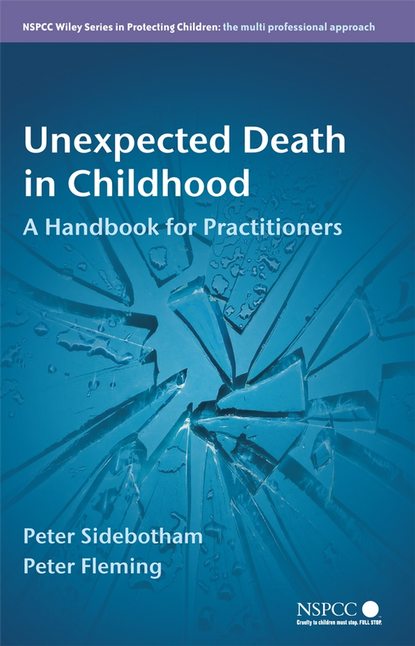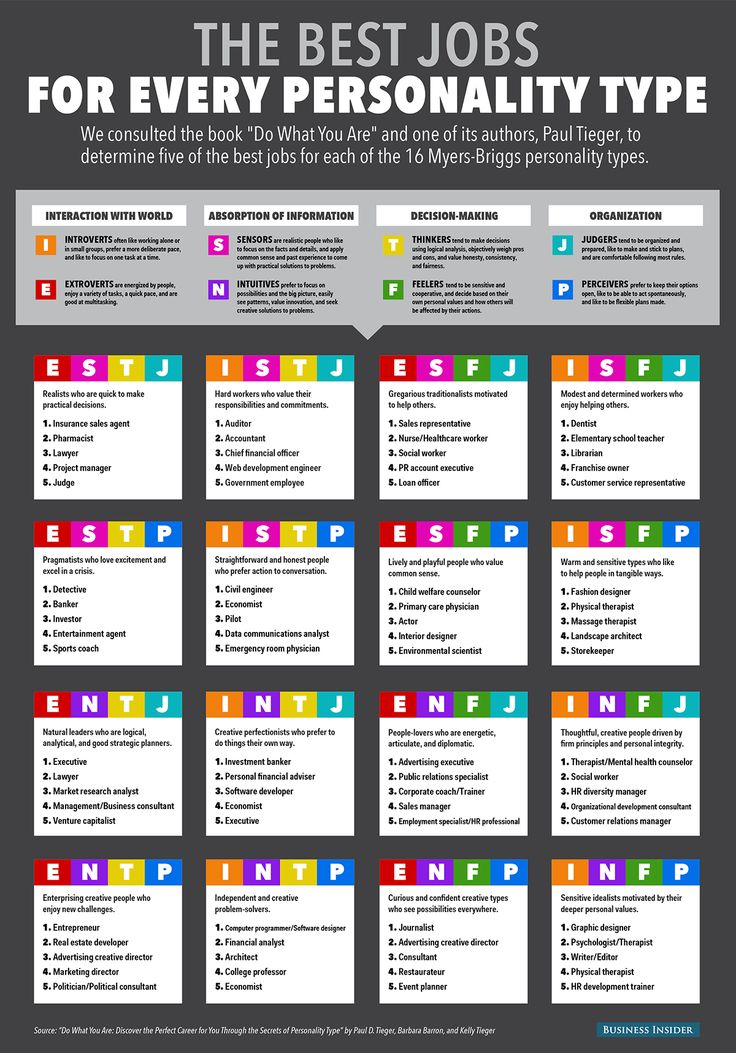Reasons why people lie
9 Motives for Telling Lies
Reading between the liesWhy do people lie? Such a simple question should come with a simple answer (but doesn’t, unfortunately). There are indications, however, that most of us share the same the motives for telling lies.
How to tell if someone is lying
Numbers don’t lieMy data collected during interviews with children and from questionnaires completed by adults suggests that telling lies occurs (at least in part) for one of nine reasons:
1. To avoid being punished. This is the most frequently mentioned motivation for telling lies (by both children and adults). It’s important to note that there were no significant differences for lies told to avoid punishment for a purposeful misdeed versus an honest mistake.
2. To obtain a reward not otherwise readily obtainable. This is the second most commonly mentioned motive, by both children and adults. An example of this is falsely claiming work experience during a job interview to increase chances of hire.
3. To protect another person from being punished. As with lying to avoid personal punishment, motive does not change with intent. We’ve seen this occur between coworkers, friends, family, and even with strangers!
4. To protect oneself from the threat of physical harm. This is different from being punished, for the threat of harm is not for a misdeed. An example would be a child who is home alone telling a stranger at the door that his father is asleep now and to come back later.
5. To win the admiration of others. Telling lies to increase your popularity can range from “little white lies” to enhance a story being told to creating an entirely new (fabricated) persona.
6. To get out of an awkward social situation. Examples of how telling lies can look when motivated by this are claiming to have a babysitter problem to get out of a dull party, or ending a telephone conversation by saying there is someone at the door.
7. To avoid embarrassment. The child who claims the wet seat resulted from water spilling, not from wetting her pants, is an example if the child did not fear punishment, only embarrassment.
8. To maintain privacy without notifying others of that intention. For example, the couple who claims to have eloped because the cost of a wedding was beyond their means when, in reality, they were avoiding the obligation to invite their families.
9. To exercise power over others by controlling the information the target has. Famously embodied by Hitler, this is arguably the most dangerous motive for telling lies.
Even More MotivationI suspect there are motivations behind telling lies that fall outside one of the above nine categories, such as trivial deceits like lies told out of politeness or tact, which are not easily subsumed by these nine motives. However, these nine were presented in data I collected myself and can, at least, be used as the foundation to explain why people lie.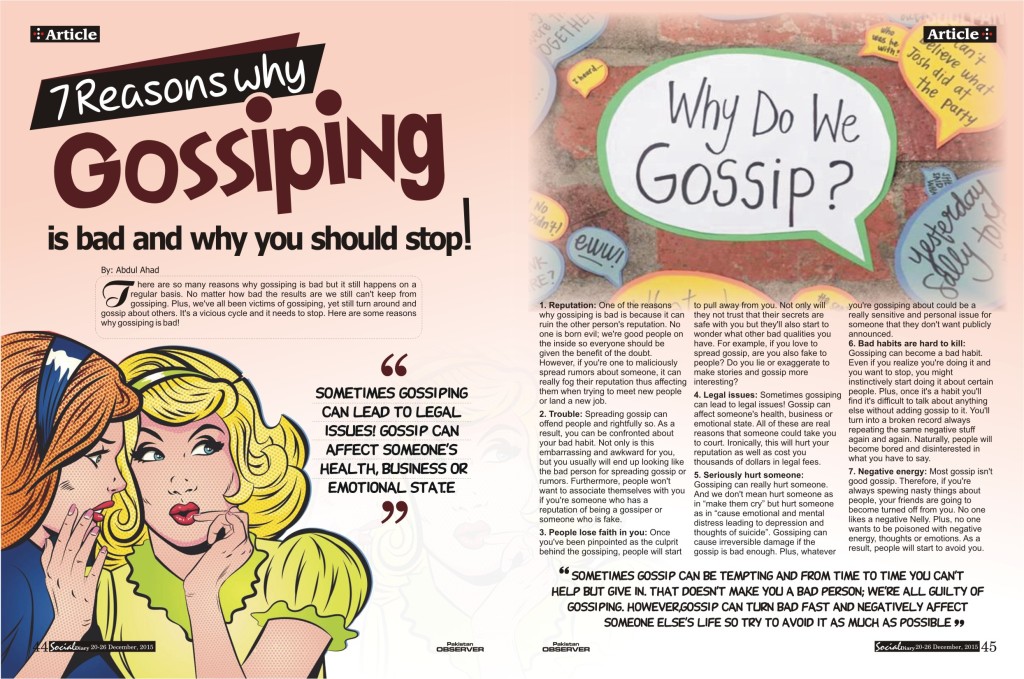
Want to know if you are being lied to?
When lying, the face often contains two messages- what the liar wants to show and what the liar wants to conceal. Often, these hidden emotions leak in the form of a micro expression, a brief (half a second or less) involuntary facial expression revealing true emotion.
While Dr. Ekman cautions that a single micro expression or flash of leakage does not offer conclusive proof of lying, micro expressions are one of the most effective nonverbal behaviors to monitor to indicate a person is being dishonest.
Students can receive a 25% discount on training tools by sending a current copy of their student ID to [email protected].
Paul Ekman is a well-known psychologist and co-discoverer of micro expressions. He was named one of the 100 most influential people in the world by TIME magazine in 2009. He has worked with many government agencies, domestic and abroad. Dr.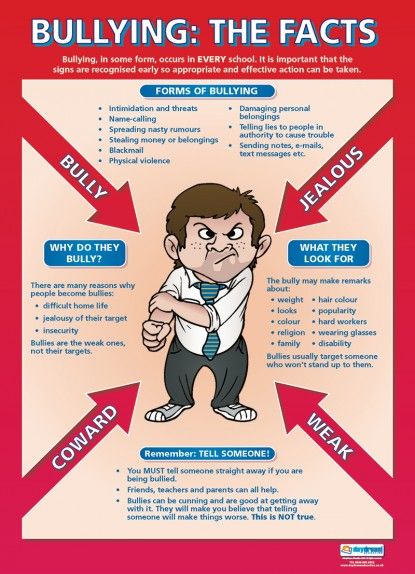 Ekman has compiled over 50 years of his research to create comprehensive training tools to read the hidden emotions of those around you.
Ekman has compiled over 50 years of his research to create comprehensive training tools to read the hidden emotions of those around you.
Start Training View All Posts
Why People Lie | Reasons for Lying
Why People Lie
People resort to lying for so many different reasons that it’d be impossible to list them all. However, of the most common motives for telling lies, avoiding punishment is the primary motivator for both children and adults. Other typical reasons include protecting ourselves or others from harm, maintaining privacy, and avoiding embarrassment, to name a few.
How to tell if someone is lying
Avoiding Punishment
“I thought I was only going 55 miles an hour officer” claims the driver speeding at 70 mph. “My wristwatch stopped so I had no idea that I got home 2 hours after my curfew”, says the teenager. Avoiding punishment is the most frequent reason people tell serious lies, regardless of their age, whether it be to avoid the speeding ticket or being grounded. In serious lies there is a threat of significant damage if the lie is discovered: loss of freedom, money, job, relationship, reputation, or even life itself.
In serious lies there is a threat of significant damage if the lie is discovered: loss of freedom, money, job, relationship, reputation, or even life itself.
It is only in such serious lies, in which the liar would be punished if detected, that lies are detectable from demeanor – facial expression, body movements, gaze, voice, or words. The threat imposes an emotional load, generating involuntary changes that can betray the lie. The lies of everyday life where it doesn’t matter if they are detected – no punishment or rewards — that lies are easily told flawlessly.
Concealing Reward or Benefit
In serious lies the falsehood is usually told to conceal the reward or benefit the liar obtained by breaking a rule or explicit expectation. The curfew violator was able to stay longer at the party; the speeding driver is rushing because he pushed the snooze button when the alarm went off. The husband who claims the ringer on the telephone in his office must have been turned off when he was ‘working’ late – in a hotel room with his girlfriend – will pay no price if his lie succeeds. In each of these examples, the rule breaker decides before breaking a rule that he or she will if questioned lie to cover the cheating. Sometimes the reward could have been achieved – a high mark on an exam — without cheating but not as easily, it would have taken more effort (hours of study in this example).
In each of these examples, the rule breaker decides before breaking a rule that he or she will if questioned lie to cover the cheating. Sometimes the reward could have been achieved – a high mark on an exam — without cheating but not as easily, it would have taken more effort (hours of study in this example).
Protecting Someone from Harm
Protecting someone else from harm is the next most important reason why people tell serious lies. You don’t want your friend, you fellow worker, your sibling, your spouse – anyone who you care about — to get punished, even if you don’t agree with what the person you are protecting did that put him or her in danger. It is not certain whether society approves of these lies. When policemen refuse to testify against a fellow officer they know has broken the law, we respect their motives but many people believe they should be truthful. Yet the terms we use – rat, fink, snitch – are derogatory. Anonymous call-in lines exist so those who volunteer information can avoid any loss of reputation or danger by informing. Do we have different standards for people who take the initiative to inform as compared to those who inform when directly asked to reveal information? I will reconsider this issue in a later newsletter when I write about children’s lies and why we don’t want them to tattle.
Do we have different standards for people who take the initiative to inform as compared to those who inform when directly asked to reveal information? I will reconsider this issue in a later newsletter when I write about children’s lies and why we don’t want them to tattle.
Self-Protection
To protect yourself from being harmed even when you have not broken any rule is still another motive. The child home alone who tells the stranger knocking on the door “my father is taking a nap come back later”, has committed no misdeed that he or she is concealing; it is a self-protection lie.
Some lies are told to win admiration from others. Boasting about something untrue is an obvious instance. It is common in children, some adolescents, and even adults. If discovered it harms the reputation of the boaster, but not much more than that. Claiming falsely to have earned money for previous investors moves into the criminal realm.
Maintaining Privacy
To maintain privacy, without asserting that right, is another reason why people may lie.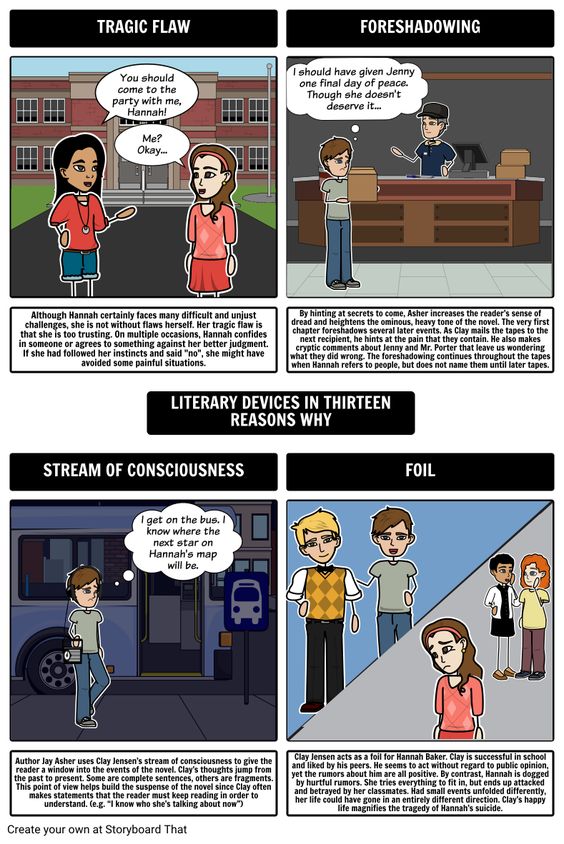 A daughter answering her mother’s question “who were you talking to on the phone just now”, by naming a girlfriend, not the boy who is asking her out on a date, is an example. It is only when there is a strong trusting relationship, that a child would feel brave enough to say “that’s private”, announcing the right to have a secret. Another topic I will return to in my newsletter about trust.
A daughter answering her mother’s question “who were you talking to on the phone just now”, by naming a girlfriend, not the boy who is asking her out on a date, is an example. It is only when there is a strong trusting relationship, that a child would feel brave enough to say “that’s private”, announcing the right to have a secret. Another topic I will return to in my newsletter about trust.
The Thrill of it All!
Some people lie for the sheer thrill of getting away with it, testing their unsuspected power. Many children will at some point lie to their parents simply to see if they can do it. Some people do this all the time enjoying the power they obtain in controlling the information available to the target.
Avoiding Embarrassment
Avoiding embarrassment is still another motive for some serious and many trivial lies. The child who claims the wet seat resulted from spilling a glass of water, not from wetting her pants is an example, if the child did not fear punishment for her failure, just embarrassment.
Avoiding embarrassment is relevant to many less serious lies that come under the rubric of lies-of-everyday-life. Very often people lie to get out of an awkward social situation. They may not know how to do it – “can’t get a babysitter” offered to avoid another dull evening and food. “Sorry I am on my way out the door”, an excuse given by people who do not feel brave enough to be truthful even to a totally unknown telephone solicitor.
Being Polite
Then there are the deceptions that are required by politeness — “thanks so much for the lovely party” or “that color really looks good on you”. I don’t consider these to be lies, anymore than bluffing in poker is a lie, acting in a play is lying, or the asking price not being the selling price. In all of these instances the target does not expect to be told the truth, there is notification. But the impostor is a liar, as is the con man, because they are taking advantage of our expectation that we will be told the truth. More about this will be in my newsletter about the different techniques for lying.
Do we really want to know if someone is lying?
In most cases, there’s no quick or easy way to detect deception and, even if there were, we might not like what we discover.
So, while people often claim to want to know the truth, there are many instances in which it is more comforting to believe the lies. In these circumstances, we tend to ignore deception clues and excuse otherwise suspicious behaviors to avoid the potentially negative consequences of uncovering the lies we’re told.
Still want to know if you’re being lied to? Check out our micro expressions training tools to learn how!
Paul Ekman is a well-known psychologist and co-discoverer of micro expressions. He was named one of the 100 most influential people in the world by TIME magazine in 2009. He has worked with many government agencies, domestic and abroad. Dr. Ekman has compiled over 50 years of his research to create comprehensive training tools to read the hidden emotions of those around you.
Start Training View All Posts
6 reasons why people lie, even if they don't have to
114,358
Knowing Yourself A Human Among Humans
Most people try to always tell the truth. Some lie more than others. But there are those who lie all the time. Pathological lying is not a clinical diagnosis, although it can be one of the symptoms of psychopathy and manic episodes.
But the vast majority of liars are mentally healthy people who think differently or lie under the influence of circumstances, explains David Lay, psychiatrist, doctor of clinical psychology. Why do they do it?
1. Lies make sense to them
Others do not understand why they lie even in small things. In fact, these little things are important for those who lie. They have a different perception of the world and a different system of values. What matters to them is what is not important to most.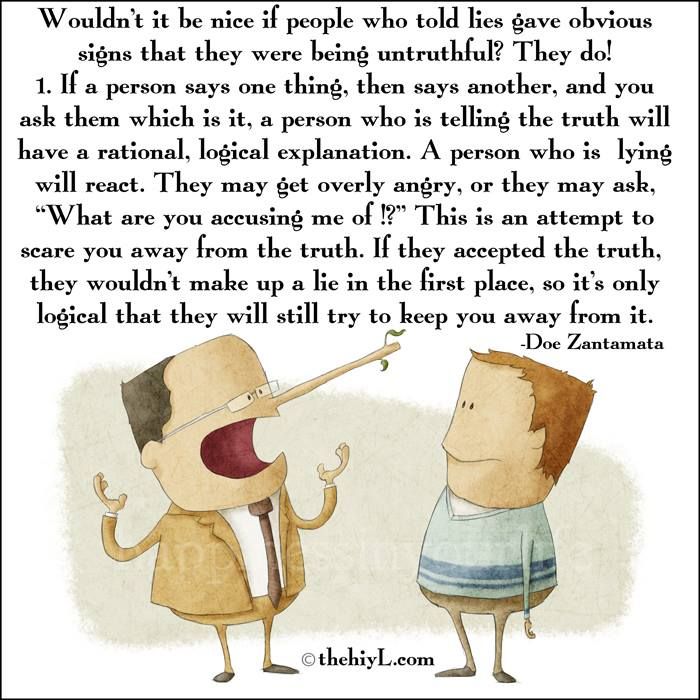
2. When they tell the truth, they feel like they are losing control of the situation.
Sometimes such people lie to influence others. They are sure that their deceit sounds more convincing than the truth, and allows them to control the situation.
3. They do not want to upset us
They lie because they are afraid of the disapproval of others. Liars want to be appreciated and loved, to be admired. They fear that the truth does not look very attractive and, having learned it, friends may turn away from them, relatives will begin to be ashamed, and the boss will not entrust an important project.
4. Once they start lying, they cannot stop
A lie is like a snowball: one catches the other. The more they lie, the harder it is for them to start telling the truth. Life becomes like a house of cards - if you remove even one card, it will collapse. At some point, they begin to lie to reinforce past lies.
Pathological liars are sure that if they confess in one episode, it turns out that they have told a lie before.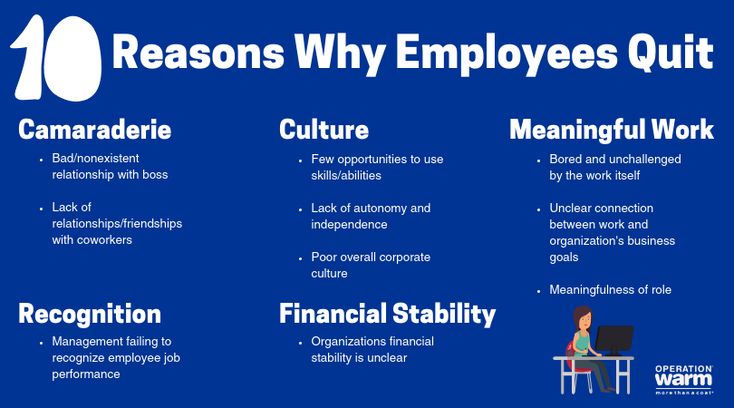 Fearing exposure, they continue to deceive even where it is not necessary.
Fearing exposure, they continue to deceive even where it is not necessary.
5. Sometimes they do not even realize that they are lying
In a stressful situation, people do not think about the little things, because first of all it is important to save yourself. And they turn on a survival mode in which they are not fully aware of what they say or do. And they sincerely believe in their own words.
People believe in what was not, if it suits them. And after the danger has passed, they do not remember what they said under the influence of stress.
6. They want their lies to be true
Sometimes liars wishful thinking. It seems to them that dreams can become reality with a little pretending. They will become richer if they start to splurge and talk about their mythical wealth or a millionaire grandfather who left them a will.
How to communicate with a liar?
Whatever the reason for lying, the deceiver always feels uncomfortable. And here the reaction of others is important. If the interlocutor in response to a lie says: “Stop inventing!”, “Again you are deceiving me!” or “I will bring you to clean water!”, the liar turns on a defensive reaction.
If the interlocutor in response to a lie says: “Stop inventing!”, “Again you are deceiving me!” or “I will bring you to clean water!”, the liar turns on a defensive reaction.
Most of all, such people are afraid to look like deceivers in the eyes of others and are able to go to any lie to prove that they can be trusted.
If you want to know the truth, try to refrain from attacks and accusations. First, try to determine the reason why your interlocutor is lying. Ask him, "Why is this situation so important to you?" or “Why do you want me to believe this?” “Why do you want me to look at the situation from this point of view?”
This will reduce tension and make communication more sincere. Empathy is the best way to show a person that the truth is not such a terrible thing and the world will not collapse if it turns out that he is deceiving others.
Text: Alexandra Galimova Photo Source: Getty Images
New on the site
“My husband left 5 months after the wedding. How to return it?
How to return it?
“I have been studying all my life, but I work in a low position. Why?"
Why we want to go back in time: the psychology of unhappy people
6 ways to kill a relationship
Compatibility, intimacy and freedom: what a happy marriage is built on today
How to be a man in the modern world: a review of the film "Manly"
What prevents the brain from developing: 8 bad habits
" Parked cars, phone, passers-by - I suspect everyone and everything of spying on myself "
5 reasons why people lie even without need / AdMe
swam across the English Channel. We admire an outstanding personality, but only until we get to know her better. In the future, when comparing all the facts, those around them discover a bunch of inconsistencies and understand that the person invented most of the facts of his biography. But why?
Yes, and we all at least once got into a situation when we were late for a meeting. And by phone they convinced the waiting friend that they were already on their way, although in reality they were only pulling on a sock.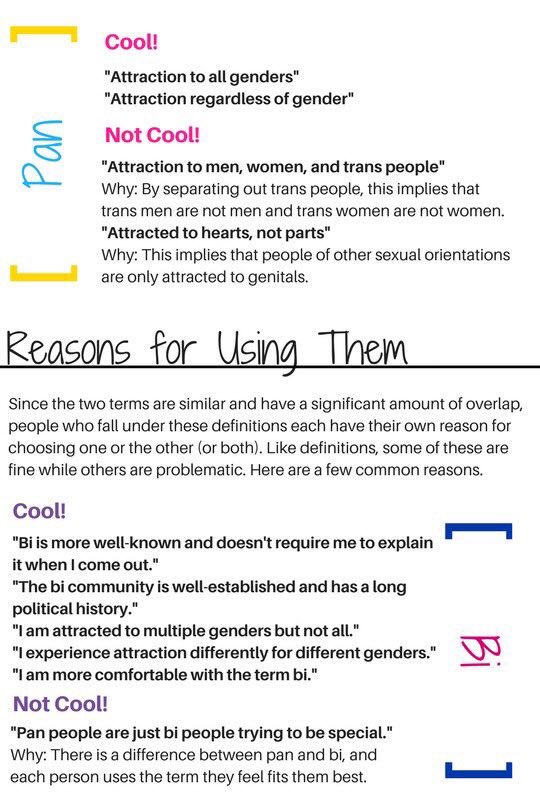 Why do we lie, even knowing that the truth will be revealed?
Why do we lie, even knowing that the truth will be revealed?
We at ADME set out to find out why people lie even unnecessarily and how to deal with pathological liars.
Everyone lies
Dr. House was right: we are all liars. Some exaggerate a little, others don't tell the truth. Why? Agree, it makes life a lot easier. We do not want to discuss our life with a colleague, so the question "How are you?" we answer “Everything is fine”, even if cats are scratching our souls. Moreover, we guess that the question sounded purely out of politeness and the development of the conversation will not please either side.
People learn to lie at an early age. Already at 3 years old, the child understands that the thoughts in his head belong only to him and no one can read them. At the same moment, he tries to tell a lie just out of curiosity - according to the principle "what will happen?".
Getting older, a person uses lies for profit.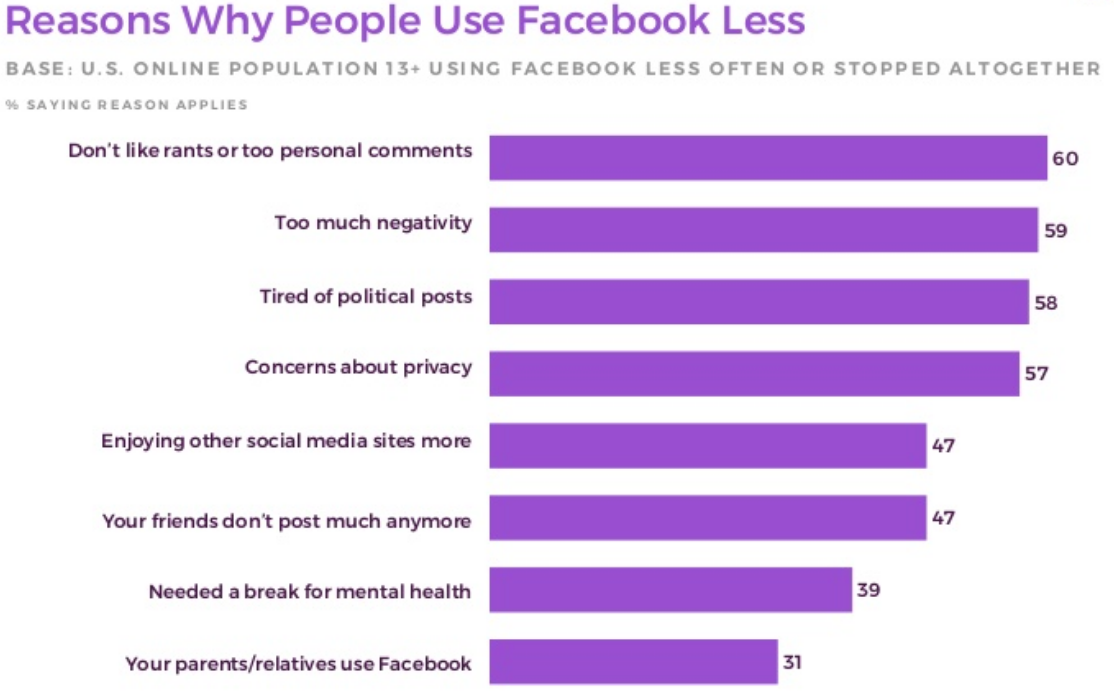 So, a child tells his mother that her favorite vase was broken by a pet, a schoolboy rips out a diary page with a deuce, a teenager tells his parents that he is going to spend the night with a friend, and not at a disco, and an adult does not come to work because he is “ill”.
So, a child tells his mother that her favorite vase was broken by a pet, a schoolboy rips out a diary page with a deuce, a teenager tells his parents that he is going to spend the night with a friend, and not at a disco, and an adult does not come to work because he is “ill”.
1. White lie
A noble lie, or white lie, occurs when we cover for a colleague in front of the boss or we want to isolate the other person from unpleasant information. For example, if you find out that a friend's husband is cheating on her, but you do not want to reveal his secret, then you justify the necessary lie with the fear of destroying their union.
Another thing is that in this situation we can suffer ourselves. If a friend still finds out the truth about her husband, then the friendship will end, because sooner or later your lies will also surface.
2. Maintaining our own image
We allow ourselves to embellish our lives a little in order to gain respect in the eyes of others: we exaggerate the cost of a phone or talk about visiting exotic countries that we have not actually been to. Such stories are driven by envy and low self-esteem. A neighbor's grass is greener, a colleague's salary is higher, and a friend's husband is more interesting. And we want to keep up and even, on the contrary, surpass other people, even if only in words.
Such stories are driven by envy and low self-esteem. A neighbor's grass is greener, a colleague's salary is higher, and a friend's husband is more interesting. And we want to keep up and even, on the contrary, surpass other people, even if only in words.
At some point, it may even seem that our words are not far from the truth: everything is fine with money, and I will someday pay off that car loan. And this is already self-deception, which can lead to serious mental problems, experts say.
3. Out of politeness
Perhaps the most socially acceptable lie. Being at least the most notorious truth teller, to the question "How do you like dinner?" at a party, you are unlikely to always answer the truth. Even if the dish seems tasteless, you praise the culinary skills of the hostess and pointedly gobble up a piece that does not go down your throat. In this case, we time so as not to offend loved ones with our straightforwardness and not be known as a rude person.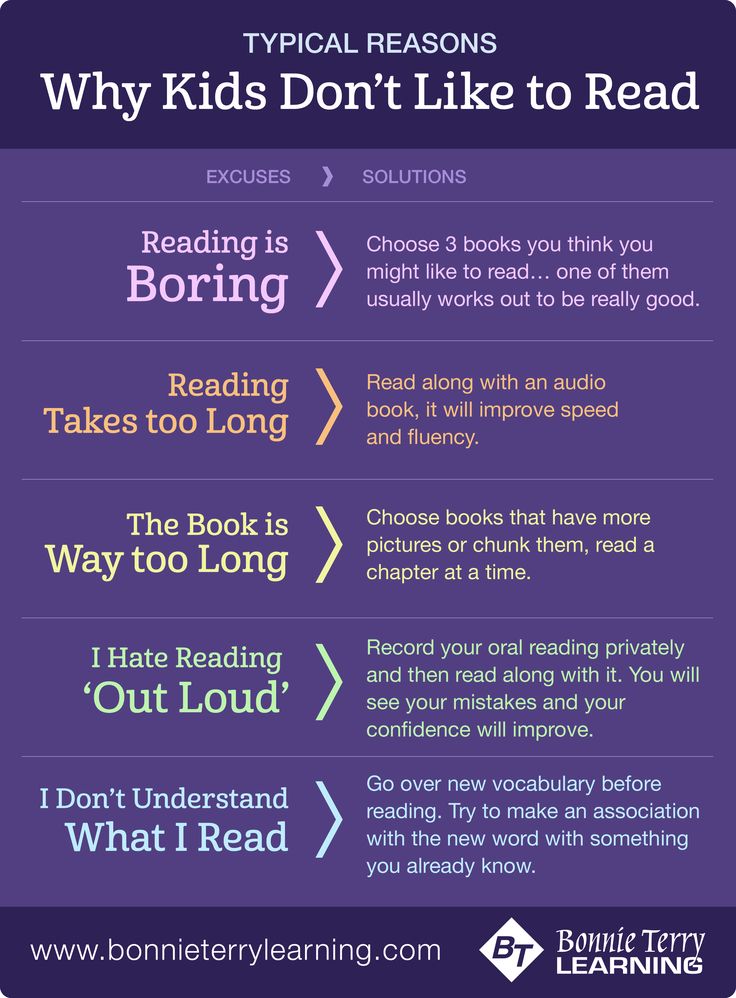
Such lying is a part of life in society, moreover, the inability to lie may indicate the presence of Asperger's syndrome, a developmental disorder of the brain on the autism spectrum.
4. They are afraid to disappoint
There is a type of people who are unable to adequately assess their own capabilities. They are also very afraid of disappointing or offending people who turn to them for help. Reliable people take on an exorbitant amount of worries. As a result, they fail and still let others down.
So if a friend asks you to help with the move and you have a report due that day, you'd better be honest about it. It will be easier for a friend to change his plans in advance than to face an unpleasant fact at the last moment.
5. They are pathological liars
Pathological liars are also formed at an early age. But in this case, there is an unhealthy situation in the child's family, when one of the parents or both deny reality and inadequately perceive the truth from the mouth of the child.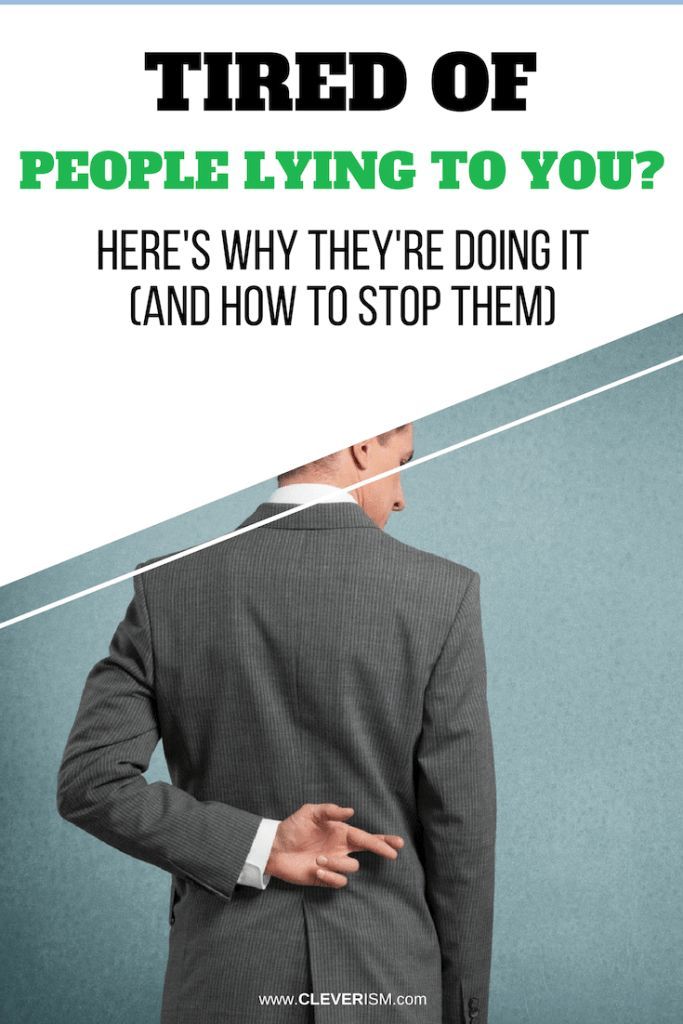 For example, a child is faced with the fact that the mother swears, ignores or takes offense at the truth. But when he lies, he gets praise. Thus, lying begins to be associated with correct behavior, and after that this mechanism is fixed and transferred to adulthood.
For example, a child is faced with the fact that the mother swears, ignores or takes offense at the truth. But when he lies, he gets praise. Thus, lying begins to be associated with correct behavior, and after that this mechanism is fixed and transferred to adulthood.
Such a person lies about and without reason and even builds his own reality, into which he is drawn more and more over time. It is most offensive to those who discover such a character among close friends or recognize in their spouse.
The pathological liar syndrome is a serious mental disorder, and such people need specialist help. Waiting for them to change themselves is pointless. That is why it is so important to be able to identify pathological liars.
How to recognize a lie?
A lie on the part of an ordinary person can be calculated by a number of both verbal and non-verbal signs that are familiar to everyone: a shifting glance, a trembling voice, a frozen facial expression, stingy and strange gestures, rapid breathing, a change in the timbre of speech, etc.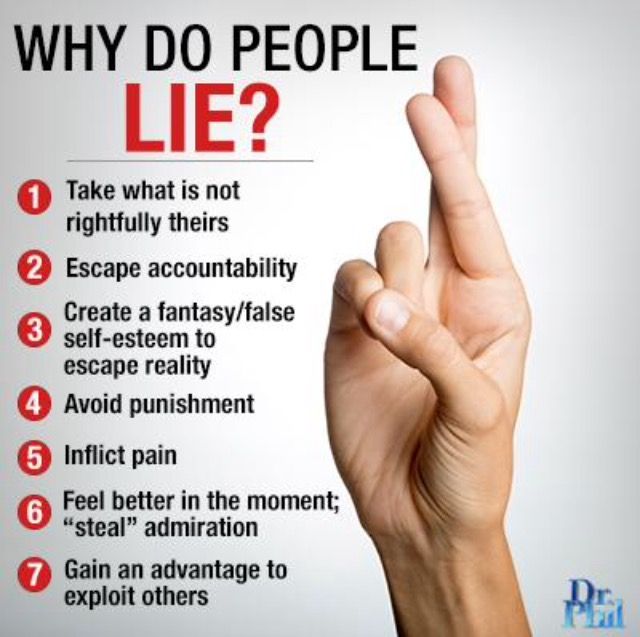 All this creates the impression of unnatural behavior, which we even read unconsciously.
All this creates the impression of unnatural behavior, which we even read unconsciously.
Finding a pathological liar is more difficult. His psyche is different from the norm, which helps the liar to invent stories more easily and believe in them himself. And this means that there are no somatic manifestations of lies: it is about such people that they say "lies and does not blush." And yet, you can understand that you have a pathological liar in front of you by some signs.
- Increased eye contact. While ordinary liars avoid eye contact, pathological liars, on the other hand, hold their gaze for an excessively long time. Under normal circumstances, we look directly at the interlocutor for 2/3 of the conversation time with a delay of about 3 seconds. A closer look should alert you.
- Insincere smile. If a pathological liar willingly believes in his own truth, then he still cannot force himself to be plausible. A smile is the most difficult emotion to fake. If we are really happy about something, our eyes glow with happiness, while facial expressions of the eyelids are involved, and with a fake smile, only the corners of the lips rise.

